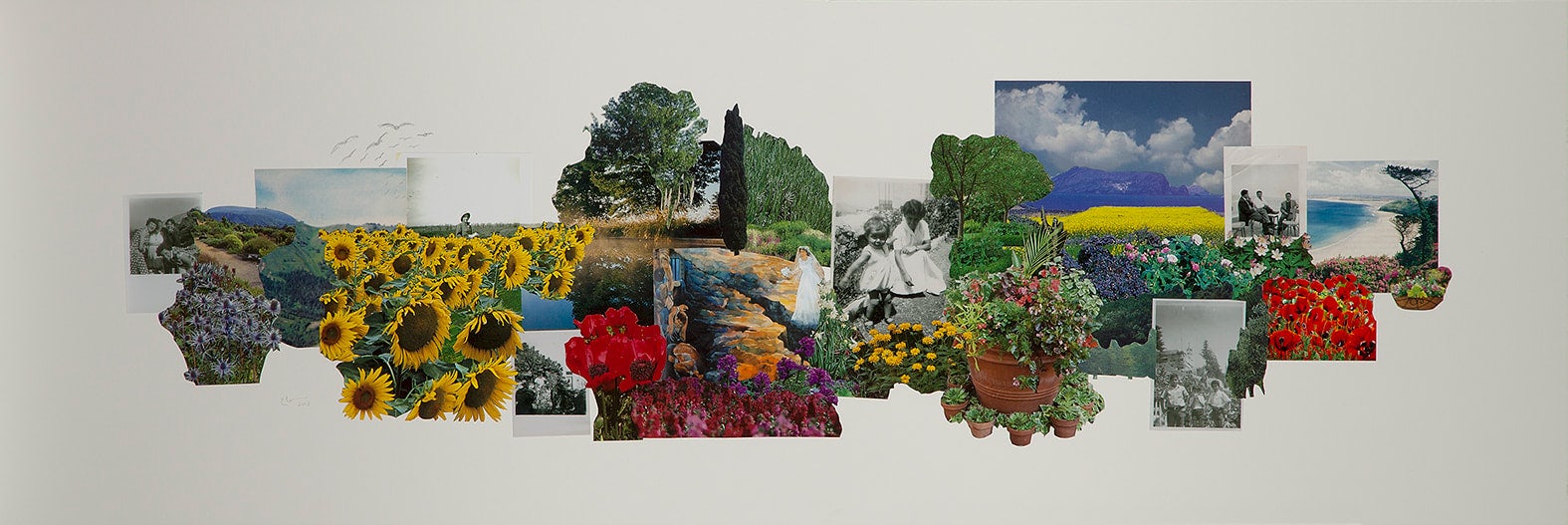Rewatch – A Fair New World?! Talk #3

Paradise Series I (2013) by Samah Hijawi
What lasting contribution can the arts sector make in times of (humanitarian) crisis? A conversation about sustainable engagement and built-in solidarity.
What lasting contribution can the arts sector make in times of (humanitarian) crisis? War, pandemic, climate crisis… In times of disaster, people are eager to help, also in the arts.
Art naturally relates to the world in which it thrives. The question is: What can, or should its role be in times of disaster? If we want to build a Fair New World, how do we make that engagement structural? Conflicts across the world are causing humanitarian misery. How can we make a long-term, fair contribution to these types of disasters?
Rewatch the talk here
We are trying to show content from Vimeo.
Kunsten.be only uses minimal cookies. To view content by a third party website, this site can place additional cookies. By continuing to browse you are agreeing to the use of those third party cookies.
Read more about our privacy policy?
Download the full transcription of the talk in English or in Dutch.
Date and Location
24 May, 19.30u
S.M.A.K., Jan Hoetplein 1, Ghent
About the speakers


Abdullah Alkafri
Abdullah Alkafri is an award-winning playwright and theatre director. He has also collaborated with arts organisations including LIFT (UK), the Royal Court Theatre (UK), IEVP (Norway) and Lark (USA). He also works as a trainer, strategic planner, fundraiser and designer for arts intervention initiatives, working with Culture Resource (Al Mawred Al Thaqafy) and the Friedrich Ebert Stiftung among many others in Lebanon, Syria, Tunisia, Yemen and elsewhere. He is a member of selection committees of the Arab Council for Social Sciences, a regular collaborator with the Sundance Institute’s MENA Theater Lab and the board of the 7th World Summit on Arts and Culture.
In 2014, Abdullah Alkafri, a founding member of Ettijahat – Independent Culture, was chosen to succeed Ms Rana Yazji as Executive Director of the non-governmental organisation. Ettijahat is dedicated to supporting Syrians artists and cultural practitioners and their peers across the Arab region and Europe, providing capacity-building and educational opportunities to artists, cultural practitioners and academics, as well as financial and legal support. Alkafri also teaches MA Theatre at l’Université Saint-Joseph, Beirut, where he is also currently undertaking a PhD.
Alexandra Tryanova
Alexandra Tryanova is an Odesa-born, Antwerp-based independent curator. She works with topics of recreation, Eastern European conceptual art, gender, and institutional critique. In a frame of the 5th Odessa Biennial of Contemporary Art (2017), she has established a non-production site residency Kunsthalle Lustdorf that continues its work as an independent artistic and curatorial association for open practices and technologies in a suburb of Odessa. Between 2018 and 2019, she worked at the Museum of Odessa Modern Art as a curator, where she curated a list of exhibitions, among which (un)named by Nikita Kadan and In memoriam exhibition of Stas Volyazlovsky. As a junior curator of the PinchukArtCentre, Alexandra has co-curated the exhibition Ain’t nobody’s business (2019) and curated the exhibition of the 20 artists shortlisted for the PinchukArtCentre Prize (2020). Then In 2021, she continued her studies in Belgium at Curatorial studies at KASK (Ghent) and now collaborates with Jester (Genk) in the frame of the series Conflict zones.
Dušica Dražić
Dušica Dražić is an artist, curator and creative producer. She explores spaces of irregularity that carry a strong political meaning. She analyses their transformation and rethinks them at the level of cultural continuity. The history of the place and opposing interpretations of the past were always in the foreground of her practice. Often the complexity of the subject entails a combination of scientific and artistic approaches, that foster transdisciplinary and collaborative work. She exhibited works internationally in solo and group exhibitions and was a resident at, a.o.: Q21-Museums Quartier (Vienna), Iaspis (Stockholm), ISCP (NYC), KulturKontakt (Vienna), TimeLab (Ghent) and Tobačna 001 (Ljubljana).
Dražić has initiated and curated collaborative projects and exhibitions. In 2018 she, together with Wim Janssen, co-founded OUT OF SIGHT, a venue for contemporary art in Antwerp, dedicated to audiovisual, experimental and time-based practices. OUT OF SIGHT exposes value within what we often perceive as different, marginal or even unwanted. It is a space where the poetic and the political coexist. Since 2020 Dražić joined wpZimmer, an international workspace for the arts, with a focus on performance and hybrid artistic practices, as a creative producer and artistic collaborator.
An Vandermeulen
Ann Vandermeulen is the artistic coordinator of Globe Aroma. Globe Aroma is an artistic work and meeting place that offers space, time and a network to artists, co-creators and art lovers with a newcomer background. The place supports people who, due to their precarious citizenship status, often experience specific challenges when accessing the arts sector and developing artistic practices.
About the moderator
Milica Ilic
Milica Ilic is a cultural worker specialised in transnational cooperation in particular in contemporary performing arts. At Onda, the French office for performing arts circulation, she coordinates RESHAPE, an experimental research and development project looking at reimagining the art sector’s organizational models in Europe and southern Mediterranean. Previously International Advisor at Onda, Communication and Administration Manager at IETM, international network for contemporary performing arts and Project Manager at the University of Arts in Belgrade. As a freelance consultant, she works on various international cooperation, training, research and evaluation projects in the field of culture.
image: (c) Samah Hijawi


